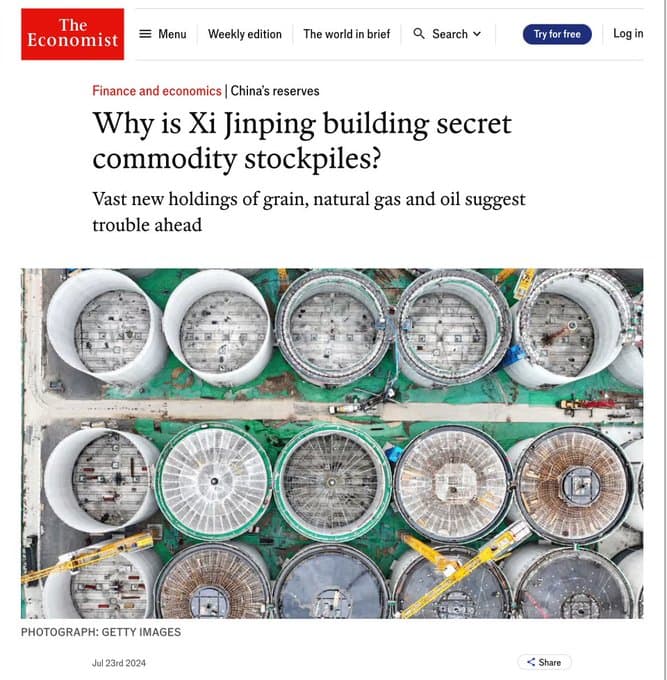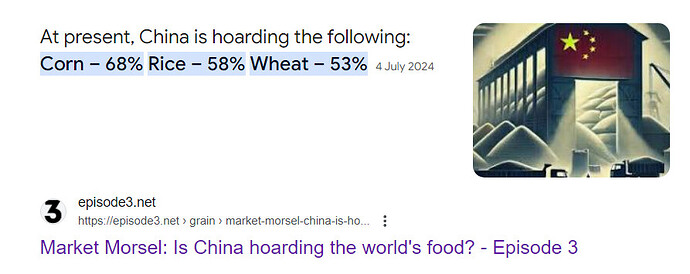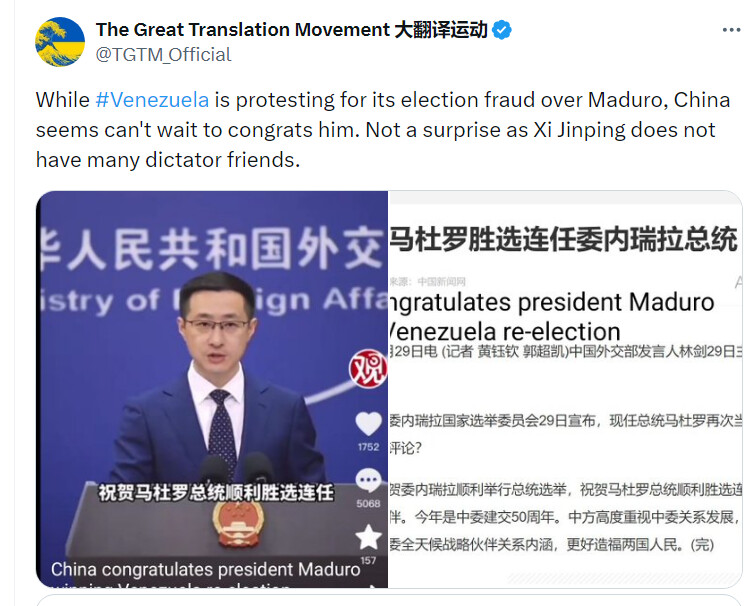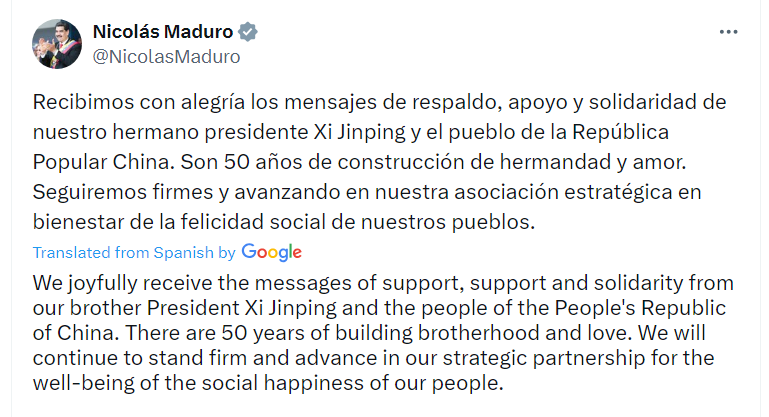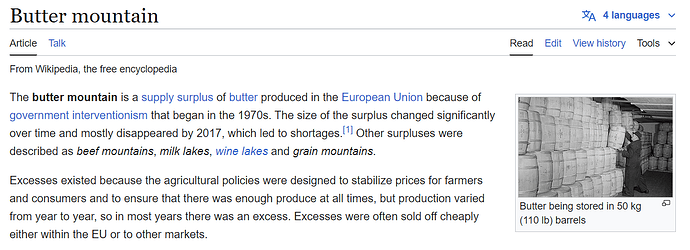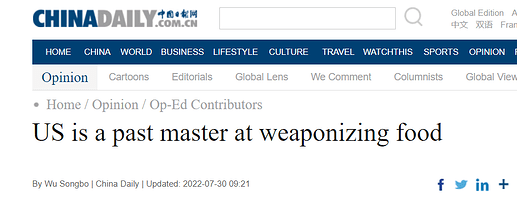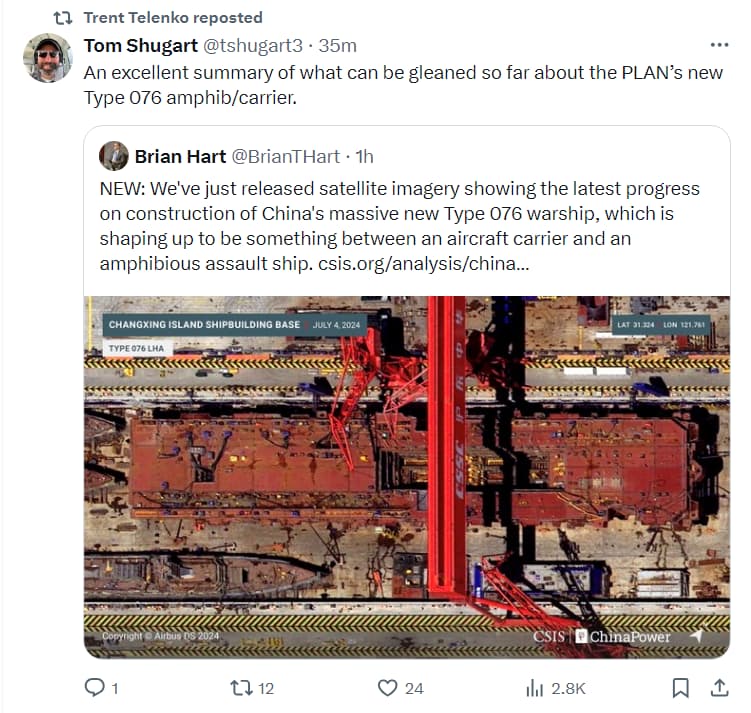China can’t let something as unimportant as the will of the people become a precedent for what government a country has.
Does the EU still have their butter mountains and wine lakes? How much corn, oil etc does the US currently have “hoarded”.
Someone should tell the economist this seems common practice in the world’s largest economies.
China and the US are very different , obviously. The US is self-sufficient in food production. It’s food and grain surpluses are so large they go towards export for trade and a large part of corn production to biofuel. A national strategic reserve of grain or other foodstuffs is deemed to be unnecessary and stockpiling commodities would only serve to level out fluctuations in the market to the detriment of the US agriculture sector.
Global Food Roundup: Crisis Grain Stockpile Highlights Food Worries - Bloomberg
The State of U.S. Strategic Stockpiles | Council on Foreign Relations (cfr.org)
Strategic grain reserve - Wikipedia
U.S. disapproval of China’s grain stockpiling full of irony | Reuters
Butter mountains and wine lakes were the product of government intervention in the market, not the result of deliberate building of strategic reserves of luxury goods, so no equivalence or relevance to the topic of stockpiling food.
Chinese invasion of Taiwan would be worse global crisis than Ukraine war or Covid, warns president
Taiwan’s president Lai Ching-te has warned that a Chinese invasion of the self-governed island would have worse global impacts than either Vladimir Putin’s war on Ukraine or the Covid pandemic.
Mr Lai was speaking on Tuesday during the largest-ever gathering of foreign lawmakers and dignitaries in Taipei, at a summit chaired by the Inter-Parliamentary Alliance on China. The coalition, with hundreds of members from parliaments in more than 35 countries, is focused on monitoring Beijing’s threats to democracy and human rights.
Lawmakers met on Monday and held panel discussions on Tuesday at the event, attended by The Independent, which is taking place despite intense pressure against participants from the Chinese government.
Mr Lai said he hoped the summit would “allow the world to understand that any conflict in the Taiwan Strait will have a more profound economic impact on the world than the Russia-Ukraine war and Covid-19”.
MPs from countries including the UK, Australia, Japan and South Korea have travelled to Taipei for the talks, and at least eight of those invited have spoken out about being contacted by Chinese officials urging them not to attend. Some were even offered invitations to visit the Chinese mainland instead – or asked to explain why they were planning to travel to Taiwan.
The Taiwanese president praised those attending the talks for showing up despite China’s blocking tactics, which he described as part of a broader campaign of intimidation designed with one ultimate goal: Xi Jinping’s “authoritarian external expansion” to seize control of Taiwan.
Mr Lai said the island has a detailed action plan in the event of an invasion from China, and praised the conduct of “unscripted, actual-combat” drills earlier this month to bolster his defence forces, but said this would not be Taiwan’s preferred outcome. “Peace and stability across the Taiwan Strait are closely related to global democracy, peace and prosperity,” he said.
“Taiwan will make every effort to work with its democratic partners to build a ‘democratic umbrella’ to protect democratic partner countries from the threat of authoritarian expansion,” he told the gathering of lawmakers, journalists and analysts.
On Monday, before the start of the discussions proper, Taiwan’s Ministry of Foreign Affairs hosted the visiting lawmakers on a diplomatic tour of the island – an excursion that was punctuated by China sending at least a dozen warplanes across the median line of the Taiwan Strait.
Amid the looming threat of Chinese military action, Taiwanese vice-president Hsiao Bi-khim met the lawmakers for “candid discussions” and spoke “very persuasively” about the importance of maintaining stability in the region, according to IPAC’s director Luke de Pulford.
“There were a lot of different opinions about different scenarios that can happen around the Taiwan Strait. What they do seem to agree on is that [an invasion] must not be allowed to happen, it must be deterred from happening and [we must] use everything that we can in our diplomatic toolbox and otherwise to prevent it from happening,” he told The Independent.
It’s called food security. Population of 1.4 billion , a terrible history of starvation from wars, disruption of food supply chains because of wars and conflicts, brinkmanship in the Pacific, the US has a record of weaponising food.
Should be buying Ukrainian sea drones. If Russia’s navy can’t float in the Black Sea good luck getting yours across the strait.
I am the wrong person to address this to. I just commented that China is being criticized for things other countries do/have done.
I was just adding some relevant facts.
“Relevant facts” Pffft, what facts? Just more personal opinion masquerading as facts. A strident anti-US opinion at that (as per usual) that could of been taken straight from a China Daily Editorial.
And stockpiling half the world’s grain supply is just called “food security”. ![]()
Other countries are not doing and have not done what China is doing atm. Refer to previous posts.
They stockpile oil.
https://www.reuters.com/business/energy/us-buys-465-million-barrels-emergency-oil-stockpile-2024-07-29/
Yes, they do. See link 2, Post 3040.
A mixed bag of spurious allegations of using medical aid as leverage or using Laos humanitarian shipments to conceal weapons transfers or “smuggling aggression” is not “weaponizing food” nor relevant to discussions of Chinese food hoarding.
Just waiting for the CT allegations of deliberately tainted wheat shipments to India to promote starvation to be trotted out next…
To add to that, a lot of effort has been made at the international level to untying food aid, at least at the economic and humanitarian level.
More progress has been made in combatting bribery and corruption in government contracts, with agreement that governments would not support the bribery of foreign governments.
Also, the initial Black Sea deal to allow the passage of grains and oilseed based products from Ukraine was secured by a clause providing for inspection of shipments incoming and outgoing. Ukraine at the time was known as a location for illegal arms smuggling.
